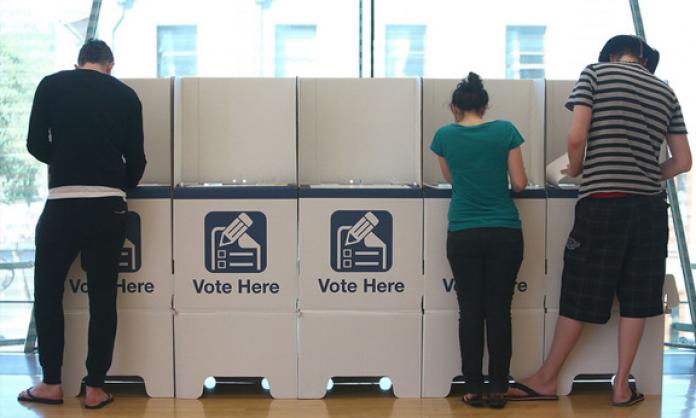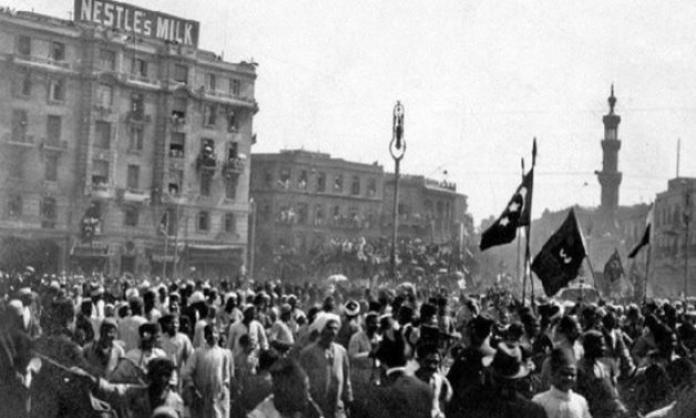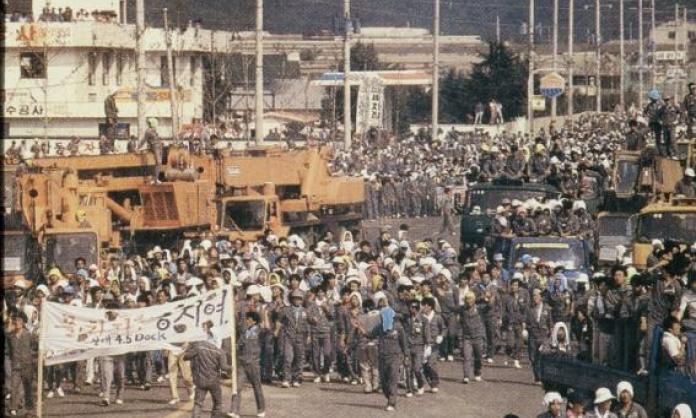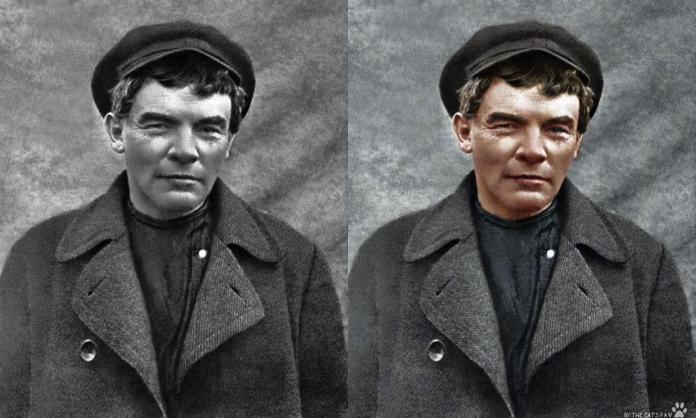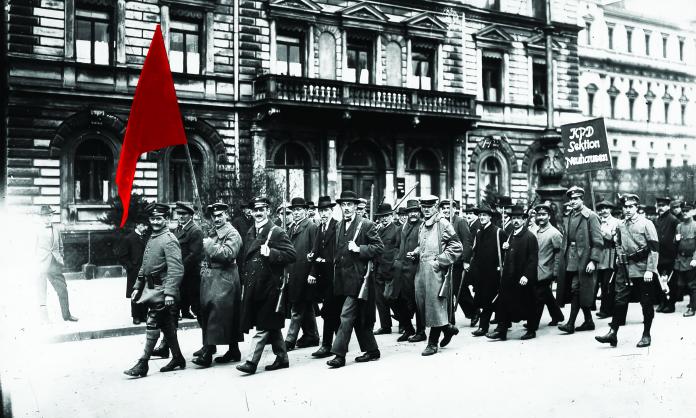The first general strike in history occurred just over 170 years ago. It was a strike of insurrectionary proportions led by a mass revolutionary movement – the Chartists.
Involving millions of workers, the strike swept through the industrial regions of England as mass pickets marched from town to town closing down factory after factory. It soon spread into Wales and Scotland, while in Ireland the Chartists formed an alliance with revolutionary Irish nationalists who had many thousands of fighters under arms.
The central demand of this revolutionary movement was the right to vote. It was a demand that the revolutionaries thought would dramatically transform the social order and usher in working class power and prosperity. Karl Marx shared the Chartists’ enthusiasm, while the capitalist class was terrified, unleashing massive military force to crush the movement brutally.
Just over a decade later, in 1854, some of the former Chartists and their Irish revolutionary allies again played a leading role in an armed uprising, this time on the goldfields of Australia. The Eureka Stockade at Ballarat was also militarily suppressed. However, on this occasion the revolutionaries succeeded in winning their main demands. The colony of Victoria became the first part of the British Empire to obtain universal male suffrage.
Over subsequent decades, the right to vote was gradually and grudgingly extended across much of the British Empire and to other countries, yet neither the hopes of the revolutionaries of the 1840s nor the fears of the capitalists were fulfilled. While workers did obtain some limited reforms, the capitalist social order remained entrenched, and the profits and the wealth of the employers grew enormously.
Parliamentary democracy – the “democratic swindle” as Karl Marx came to refer to it – did not fundamentally transform the relationship between workers and bosses. It did not deliver genuine democracy.
Rather, it provided the illusion to the mass of people that they were participating in the affairs of state – supposedly making decisions about how the country was being run. In reality, behind the mask of the parliamentary charade, the capitalists, the judges, the generals, the police chiefs and the top public service bureaucrats got on with the job of using their wealth, their economic muscle, their state powers and military might to determine fundamentally the direction of society – to sack workers, foment racism, pollute the environment, jail strikers and wage wars.
But why hasn’t the right to vote delivered the goods? Why can’t parliament guarantee genuine democracy? To answer the question, we need to start by trying to define democracy itself. It must be the most abused word in the English language.
Every tyrant, political opportunist and charlatan tries to pose as a “democrat”. The party of the slaveholders in the US South called itself the Democratic Party, while the brutal Stalinist regimes of the old Eastern Europe called themselves “People’s Democracies”. Over the last two decades, the US and Australia have waged devastating wars in the Middle East supposedly to “bring democracy”.
The original Greek word for democracy is usually translated as meaning “rule of the people”. This is misleading. It actually meant “rule of the poor” as opposed to “oligarchy”, the rule of the rich.
Measured against this definition, a political system in which you get to vote every three years for parliamentary representatives, who in between elections are at the beck and call of big business, who break all their promises and who voters can in no way discipline or remove from office until years later, is not in the least bit democratic. There is no rule of the poor in such a set-up.
This fact was well understood 2,500 years ago in ancient Athens, the first democracy. There, the poor imposed much greater democratic controls than anything we have under modern capitalism.
In ancient Athens there was no parliament. Instead there was direct democracy – laws were made by mass assemblies of the citizens. The poor were paid to attend the assemblies so they could afford to stop work.
While some public officials were elected, the Athenian masses recognised the limitations of elections. The rich could always use their wealth to sway election results, bribe voters and so on. To get around this, the poor insisted that most public offices be filled by lot – the throw of the dice. This rotated the positions of power, ensuring even the poorest citizens could hold high office, and weakened the power of the rich.
This vibrant, democratic society led to a cultural flowering and enormously rapid social advance in the Greek world. It is why the art and literature of ancient Athens still have a resonance.
Of course ancient Athens was no ideal, socialist society. The power of the rich was curtailed by the democratic advances fought for by the poor, not abolished. A minority of the population remained enslaved, and women were denied citizenship. Nevertheless, it set standards of democratic control which have never even come close to being matched in the modern capitalist world. That is why the rich so hated Athenian democracy and eventually supported foreign invaders in destroying it.
Plenty of people can acknowledge some of the limitations of the present parliamentary system but still cling to the idea that if only we elected better people to office, less corrupt or more left wing politicians, or developed an independent alternative to the mainstream parties, then we could make parliament work for ordinary people.
This view fails to understand the real power relationships in society. The few minutes of democracy that you or I get in the polling booth every three years – at most a couple of hours in a lifetime – are in no way comparable to the constant power, pressure and influence that big business exerts on governments every day of the week. It is not Gina Reinhart’s one vote but her capacity to mobilise enormous financial resources that gives her influence.
In practice, parliament is continually bypassed, and most major decisions that impact our lives – sackings, wage cuts, rents and housing prices – are made outside it.
Further, power is wrongly reflected in the parliamentary system. Under the electoral rules, representation is determined geographically: we get to vote in our local electorate. But real power, both for capitalists and workers, does not reside in suburban areas with individual voting. It resides in the workplaces and centres of financial wealth. It is in the workplaces that the capitalists generate profits – the source of their power – and it is in the workplaces that workers collectively can exert a countervailing power by shutting down the flow of profits via strike action.
This separation of political power from its real sources makes the parliamentary system a sham and a farce. Combined with the incredible elitism of parliament, this serves to deprive working class people of any real and continuous intervention in democracy and means that they are confined to a passive role in politics.
At best, workers are mobilised once every three years to vote for some Labor leader who promises to reverse some of the worst excesses of the Liberals. It is this passivity of the mass of the electorate that enables the ALP to impose such right wing policies when it is in government.
But suppose that, in response to a mass radicalisation in society, a genuinely left wing government was voted into office. What would happen?
The fact that real economic and political power lie outside parliament means that any radical parliamentary government would immediately come under tremendous pressure to toe the line of the capitalist class.
Massive sums of money would be transferred out of the country. An investment strike and large scale sackings would be threatened. The judges would assert their precious independence and declare reforming legislation unconstitutional. The top bureaucrats would sabotage decisions. Army generals and security forces would make threatening noises.
Either the radical government capitulates to these pressures and betrays its supporters, as did the Syriza government in Greece, or it will be turfed out of office by some constitutional device like the 1975 Kerr coup that sacked the Whitlam Labor government. The ultimate ruling class sanction, of course, is the sort of bloody military coup that overthrew the left wing Allende government in Chile in the 1970s.
But if parliament is such a fraud, why bother to vote at all? Why not adopt the anarchist approach, summed up in their slogan “Whoever you vote for, the government still wins”, and boycott the elections?
Cynicism about elections is understandable. The reality is that whoever wins the current election will implement broadly similar policies in the interests of big business and not the mass of people.
Real democracy is expressed on the streets and on the picket lines – by demonstrations, strikes, occupations, marches and ultimately through revolution. Mass action from below achieved the few democratic freedoms we do possess. The level of democracy in society is vitally dependent on the level of pressure from below on the powers that be.
But if voting is a third rate issue, it is still a limited freedom that is worth preserving. Furthermore, there tends to be a connection between the more important democratic freedoms – the right to demonstrate, the right to belong to a trade union or student union, our limited right to strike, the right to hold meetings and publish left wing literature – and parliamentary democracy.
Military coups and fascist dictatorships tend to abolish both parliament and all these democratic freedoms. So while the key to defending our rights is mass action, we also have to fight to defend them to the limited extent possible via the parliamentary process.
Fundamental change cannot be brought about through parliamentary action. But because most workers still do see parliament as the centre of political life, it will be a key forum for intervention by any substantial socialist party.
Where does that leave us for the current elections? A Labor or Labor-Greens coalition government will not reverse the tide of neoliberal attacks we have suffered over the last three decades. Yet no sizeable left party at present exists that can seriously challenge Labor and the Greens on the electoral front.
The key task is to build a mass working class party well to the left of Labor and the Greens, which will champion the interests of workers and the oppressed in every sphere of life – in the workplaces, on the streets, on the campuses and in parliament.




